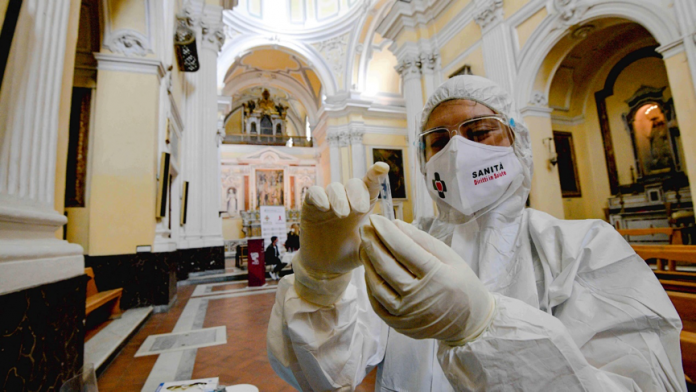These are the questions looming amidst the second wave of the Covid-19 pandemic. The health crisis is closely followed a social crisis; but if the cure for the novel coronavirus is approaching, are we in position to assess the cost of the pandemic at our societies? The question has less to do with employment as an economic activity and more with the social aspect of it.
Social distancing, closed markets, suspended work contracts, suspended social life and the widespread isolation question the resilience of our societies.
Despite the 10 months long challenging crisis, Southern European societies have demonstrated remarkable resistance to the collapse of social bonds. Communities have always had the ability to adapt to critical or adverse situations, overcome them and leave with a learned experience. In fact, the present institutional consolidations are the transformations caused from previous crises. Nevertheless, one needs to also consider that the current public health crisis comes at the end of a decade long recession stressing exactly those societies.
Possibly this is a key point to be taken into account. According to Anna Goudi, Key Account Manager at the Greek branch of the YOUTHShare Transnational Employment Centre, “the experience of the long financial crisis has strengthened people, NGOs, entreprises, local, regional or central authorities in Greece to do more with less, to cope with threats, to be self-reliant in an attempt to remain target oriented while adapting to the new realities”. Indeed, examples like the 57 public-private partnerships of local, regional authorities and NGOs materialised in 600 spots across the country offering food, medicine and services to those in need, or the rapid expansion of social and solidarity economy offering quality jobs to their members prove that a “social safety net” has already been in place. With minor adjustments that net continues strengthening the social bonds.

A beautiful example comes from Italy. The creative adaptation of community traditions reinforces the social capacity to absorb shocks, adapt and cope. Maria Cristina Porfidio, Key Account Manager at the Italian branch of the YOUTHShare Transnational Employment Centre, shares the news of the suspended swabinitiative. “People, with a small donation, can help pay the cost of swab for those who cannot afford it. The formula is based upon the Neapolitan custom, popular during WW II and still ongoing, of the suspended coffee. People can pay for their own coffee plus one, for a person who can’t afford one. The same practice has been applied for the coronavirus swabs; people can pay for their own swab plus one, in order to let those in need check if they are COVID-19 positive. In one day, already 500 swabs have been suspended”.
The question now turns to us. Where do we stand? As already mentioned, employment is more than an economic activity. It is also a whole set of social relationships. The ongoing work of the YOUTHShare Transnational Employment Centres proves to be influential in multiple levels. Mari Galiana Badenes, Key Account Manager at the Spanish branch notes that the job counselling services take place in a way that “NEETs can, on the one hand, benefit from digital equipment, Internet connection and participate in the YOUTHShare training project, while, one the other hand they remain in contact with other young people creating by that a strong human network. They find in this project a great opportunity to be included in the labour market during these difficult times, avoiding the negative side of human insulation and social exclusion”.
The same applies to the COOP Training Placement Centre in Cyprus of the YOUTHShare project in Cyprus. Anna Michael, the Key Account Manager of the centre, notes the beneficiary results of the training program and workshops offered. “The comments of young people who participated were positive. Some of the comments were about the empowerment that they felt and the change of their perspective towards their career. Most importantly, many of the participants expressed that they had a sense of support from the wider society at a time of uncertainty. It is shown that social resilience can start from society’s members and this can be achieved only through the collective effort for the common good”.
Authors
Anna Goudi
Maria Cristina Porfidio
Mari Galiana Badenes
Anna Michael


